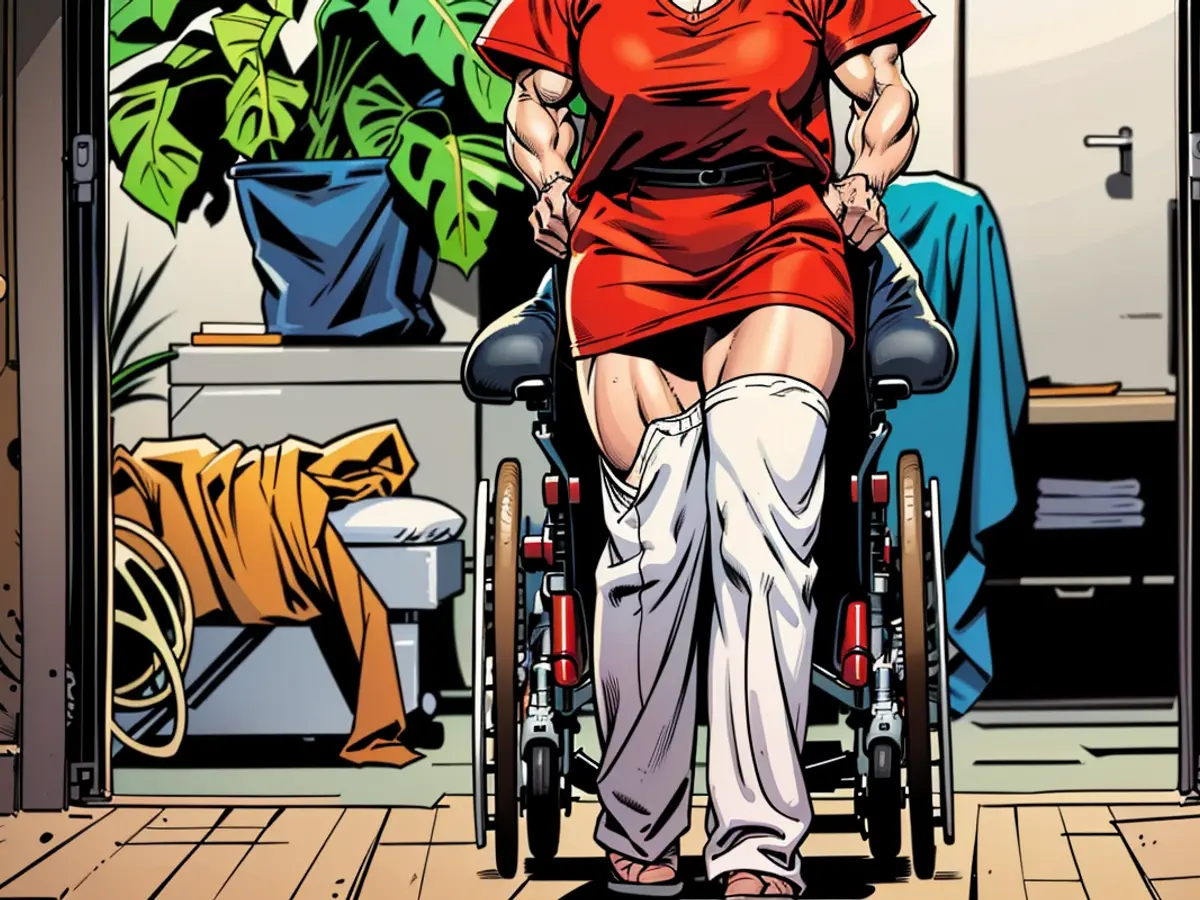Social affairs - People in need of care have to pay more for their home
For care-dependent individuals in nursing homes, the self-contribution has continued to rise. North Rhine-Westphalia is leading the way in this regard, as shown in an analysis by the Association of Statutory Health Insurance Funds, which was obtained by the German Press Agency.
According to the analysis, the average self-payment for a nursing home place nationwide was 2,871 Euro per month as of July 1st, an increase of 211 Euro compared to the middle of 2023. In North Rhine-Westphalia, it was even 3,200 Euro, which is 259 Euro more than a year ago. Following North Rhine-Westphalia are Baden-Württemberg (3,180 Euro) and Saarland (3,166 Euro) among the three most expensive states for nursing home residents.
Increase despite higher subsidies
The burden is growing despite the introduction of relief grants in 2022, which will increase from January 1, 2024, and vary with the length of stay. The average co-payment nationwide now amounts to 1,865 Euro per month with the highest subsidy, which is 91 Euro more than on July 1, 2023.
In North Rhine-Westphalia, the average self-payment with subsidies after 36 months was 2,226 Euro - 128 Euro more than at the beginning of July 2023. The reason for the increasing self-payment is primarily higher personnel costs for caregivers.
Training costs included for the first time
The cost for a nursing home place includes the self-payment for pure care and supervision. The health insurance fund covers - unlike the health insurance - only a part of the costs. In addition, residents must pay for accommodation, food, and investments in the facilities themselves.
For the first time, training costs were included in the analysis as of July 1st. This cost item was also included in the comparison values for July 1, 2023, as explained. The analysis was based on remuneration agreements between health insurance funds and nursing homes in all federal states. The Association of Statutory Health Insurance Funds includes, among others, the Techniker Health Insurance, Barmer, and DAK Health.
Criticism from Experts
The Social Association VdK reacted with concern to this development. "North Rhine-Westphalia takes the disgraceful first place - and that, despite the fact that the state is one of the few federal states that invests high three-digit million amounts in care with public funds," said the President of the VdK NRW, Horst Vöge. "A monthly self-payment of 3,200 Euro in the first year is not something our social state can accept."
A sustainable financing concept is urgently needed for the health insurance fund, which should develop into a full insurance for all care-related costs, said the representative. Continually increasing personnel and material costs are the cause of the price increases, which cannot be covered by state subsidies any longer. "Many of our members are affected and are increasingly slipping into social welfare. Care makes poor - that should not be the case."
The board of the German Patient Protection Foundation, Eugen Brysch, also considered it problematic that wage and price increases were leading to "exploding own contributions of nursing home residents." This is also uncalculable for people who want to make provisions and can. The own contribution for care must be capped so that personal costs are calculable in the long term.
Brysch called on the state government to fully cover training and investment costs. "This would relieve the affected parties by approximately 9,400 euros per year on average."
- Despite the escalating self-contribution for long-term care insurance in nursing homes, North Rhine-Westphalia remains the front runner in this regard.
- The German Press Agency reported an analysis by the Association of Statutory Health Insurance Funds, revealing that the average self-payment for a nursing home place nationwide is 2,871 Euro per month.
- In Düsseldorf, the capital of North Rhine-Westphalia, the self-payment with subsidies after 36 months is 2,226 Euro, making it one of the most expensive states for people in need of care.
- VdK, the Social Association, expressed concern over the rising self-contribution, with its president in NRW, Horst Vöge, describing a monthly self-payment of 3,200 Euro as "disgraceful" and unacceptable for the social state.
- The German Patient Protection Foundation's board member, Eugen Brysch, also believed that the exploding own contributions are problematic, particularly for people making provisions for their care needs in the long term.
- The Association of Statutory Health Insurance Funds, which includes providers like Techniker Health Insurance, Barmer, and DAK Health, included training costs in their analysis as of July 1st.
- Saarland and Baden-Württemberg follow North Rhine-Westphalia as the two most expensive states for nursing home residents, with self-payments of 3,166 Euro and 3,180 Euro respectively, according to the German Press Agency's report.








